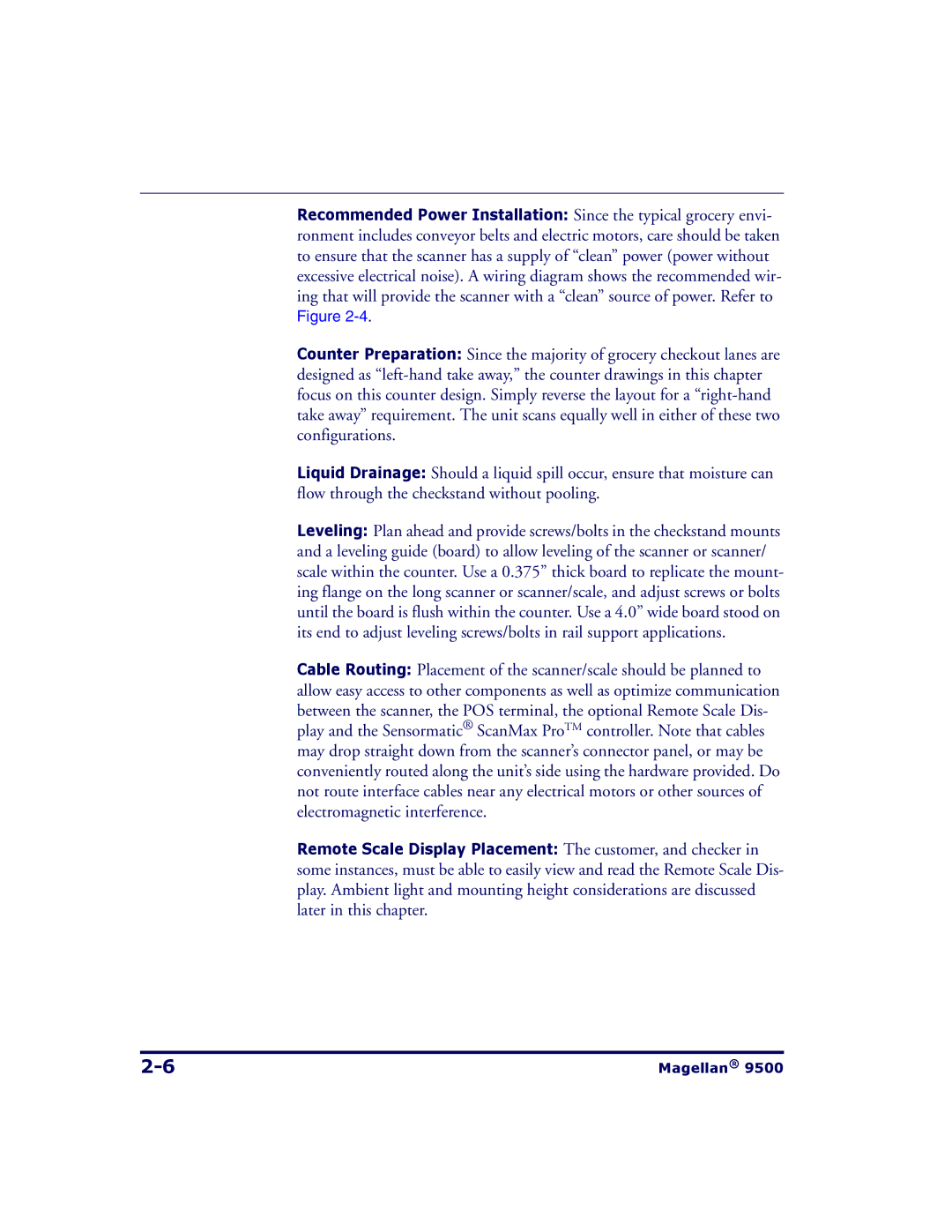Recommended Power Installation: Since the typical grocery envi- ronment includes conveyor belts and electric motors, care should be taken to ensure that the scanner has a supply of “clean” power (power without excessive electrical noise). A wiring diagram shows the recommended wir- ing that will provide the scanner with a “clean” source of power. Refer to Figure
Counter Preparation: Since the majority of grocery checkout lanes are designed as
Liquid Drainage: Should a liquid spill occur, ensure that moisture can flow through the checkstand without pooling.
Leveling: Plan ahead and provide screws/bolts in the checkstand mounts and a leveling guide (board) to allow leveling of the scanner or scanner/ scale within the counter. Use a 0.375” thick board to replicate the mount- ing flange on the long scanner or scanner/scale, and adjust screws or bolts until the board is flush within the counter. Use a 4.0” wide board stood on its end to adjust leveling screws/bolts in rail support applications.
Cable Routing: Placement of the scanner/scale should be planned to allow easy access to other components as well as optimize communication between the scanner, the POS terminal, the optional Remote Scale Dis- play and the Sensormatic® ScanMax ProTM controller. Note that cables may drop straight down from the scanner’s connector panel, or may be conveniently routed along the unit’s side using the hardware provided. Do not route interface cables near any electrical motors or other sources of electromagnetic interference.
Remote Scale Display Placement: The customer, and checker in some instances, must be able to easily view and read the Remote Scale Dis- play. Ambient light and mounting height considerations are discussed later in this chapter.
Magellan® 9500 |
